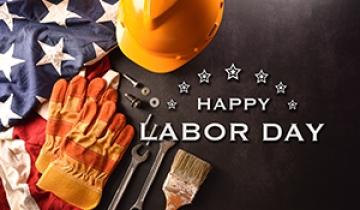Executive Order 14025 was signed by President Biden in April 2021 to establish a new task force to review and revise U.S. labor laws and regulations. The White House Task Force on Worker Organizing and Empowerment, which is chaired by Vice President Harris and Secretary of Labor Marty Walsh and consists of 20 U.S. Cabinet members and heads of federal agencies, issued a 44-page report on their recommendations in February.
According to the report, the purpose for creating the Task Force is to: “identify executive branch policies, practices, and programs that could be used, consistent with applicable law, to promote [the] Administration’s policy of support for worker power, worker organizing, and collective bargaining.” The report recommendations further align around the following three stated goals:
- Position the federal government as a “model actor;”
- Use the federal government’s authority to support worker empowerment by providing information, improving transparency, and making sure existing pro-worker services are delivered in a timely and helpful manner; and
- Use the group’s authority to leverage the federal government’s purchasing and spending power to support workers who are organizing and pro-worker employers.
The report recommends using the federal government as the model employer for all federal employees and promotes the following goals for all employees:
- Increasing visibility, support, awareness, and promotion of collective bargaining;
- Ensuring effective enforcement of existing laws; and
- Developing research and collecting data to advance policy about worker organizing and empowerment.
The report also focuses on the redefining the definition of independent contract workers, providing greater training and outreach to employees around union organizing, giving labor organizations greater access to and potential preference for federal grants, and providing unions a “seat at many federal advisory tables.”
Implications for Employers
The task force report calls on various government agencies, including the National Labor Relations Board, the Federal Mediation and Conciliation Service, and the Department of Labor, to increase activity related to employee awareness and rights related to unions, scrutiny of “persuader” activities during union campaigns, and assessment of independent contractor classifications.
These report recommendations are not final and some will be subject to further legal approval prior to becoming effective. Several recommendations are similar to the Protecting the Right to Organize (PRO) Act, which was passed by the House of Representative in 2021 but not the Senate. It is expected that several of the recommendations will be implemented via executive order, while others may require regulatory changes subject to statutory notice and comment procedure. Either option includes a timely process, so it is not anticipated that anything will be passed quickly.
MRA will continue to monitor legislation and regulatory changes that arise as a result of the task force report and will provide updates as they become available.




